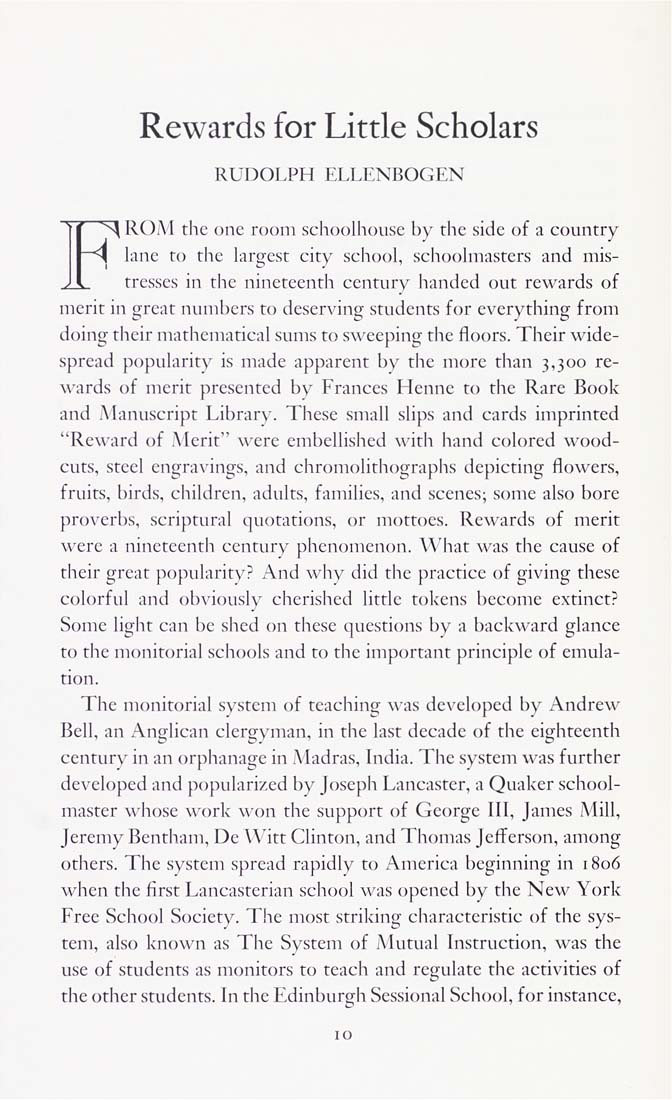Columbia Library columns (v.34(1984Nov-1985May))
(New York : Friends of the Columbia Libraries. )
|
||
|
|
|
|
| v.34,no.3(1985:May): Page 10 |

Rewards for Little Scholars RUDOLPH ELLENBOGEN F^ ROAI the one room schoolhouse by the side of a country lane to the largest city school, schoolmasters and mis¬ tresses in the nineteenth century handed out rewards of merit in great numbers to deserving students for everything from doing their mathematical sums to sweeping the floors. Their wide¬ spread popularity is made apparent by the more than 3,300 re¬ wards of merit presented by Frances Henne to the Rare Book and Manuscript Library. These small slips and cards imprinred "Reward of Alerit" were embellished with hand colored wood¬ cuts, steel engra\ings, and chromolithographs depicting flowers, fruits, birds, children, adults, families, and scenes; some also bore proverbs, scriptural quotations, or mottoes. Rewards of merit were a nineteenth century phenomenon. AA'hat was the cause of their great popidarity? And why did the practice of giving these colorful and obviously cherished little tokens become extinct? Some light can be shed on these questions by a backward glance to the monitorial schools and to the important principle of emula¬ tion. The monitorial s\stem of teaching was developed by Andrew Bell, an Anglican clergyman, in the last decade of the eighteenth century in an orphanage in Aladras, India. The system was further developed and popularized by Joseph Lancaster, a Quaker school¬ master whose work won the support of George HI, James A'lill, Jeremy Bentham, Dc Witt Clinton, and Thomas Jefferson, among odiers. The system spread rapidly to America beginning in 1806 when the first Lancasterian school was opened by the New York Free School Society. The most striking characteristic of the sys¬ tem, also known as The System of Mutual Instruction, was the use of students as monitors to teach and regidate the activities of the other students. In the Edinburgh Sessional School, for instance. |
| v.34,no.3(1985:May): Page 10 |







